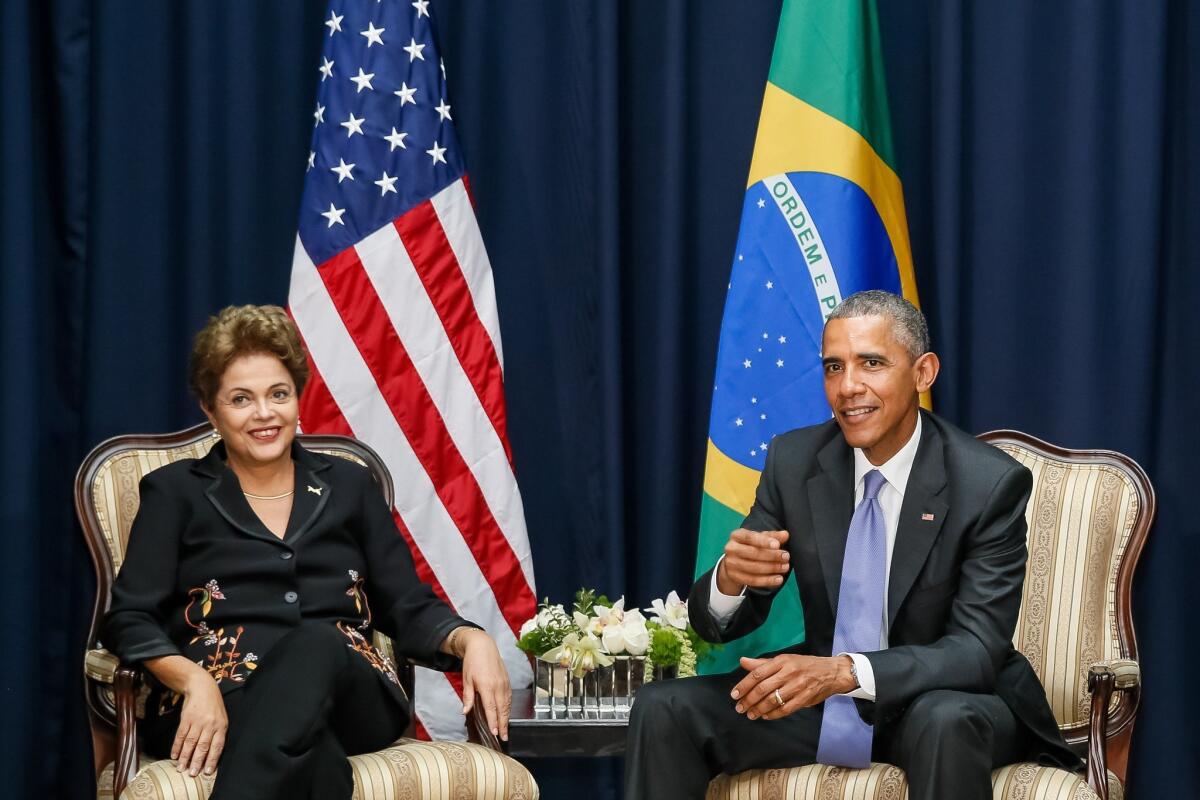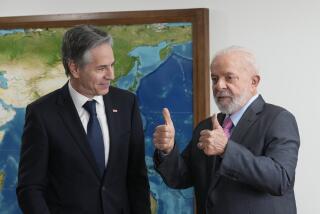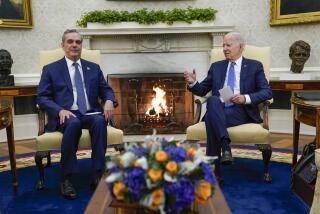Obama and Rousseff meet, appear to put spy scandal behind them

Brazilian President
In a piece of embarrassing fallout from the spy scandals that hit the Obama administration two years ago, President Dilma Rousseff of Brazil canceled a fancy state visit to Washington.
She, and the world, had just learned the extent to which the U.S. National Security Agency had eavesdropped on her and other Brazilian officials, courtesy of the leaks of National Security Agency contractor Edward Snowden.
Ever since, the United States and Brazil have worked to repair relations. Brazil is the sixth-largest economy in the world and the largest in Latin America, but Rousseff has suffered from her own scandals of late and could use an international boost.
President Obama used the just-completed Summit of the Americas to put a finishing touch on those bilateral efforts: He announced that Rousseff will travel to Washington on June 30.
Rousseff joined Obama and the presidents of Panama and Mexico for a meeting with chief executives from the Americas on Friday, a precursor to the opening of the seventh Summit of the Americas later that day.
The two met again Saturday, on the margins of the summit’s plenary sessions, and Obama later made the announcement.
“Brazil is obviously not only one of the most important countries in the hemisphere, but is a global leader on a whole range of issues,” Obama said at Rousseff’s side. “And so I’m looking forward to this meeting where we can discuss furthering the cooperation that we already have on a whole range of issues, including climate change, energy, educational exchanges, and science and technology.”
Rousseff did not allude to the past troubles with Washington and instead referred to the “continuity” of the countries’ “solid” relations. She focused instead on technical issues, like climate change, as shared concerns.
“Science and technology, education, as well as all manners pertaining to economic growth are just examples of what we can do together to improve and boost the quality of our production activity,” Rousseff said, “which is key for Brazil and which I think will help us elevate our relations to a higher threshold than it is currently today.”
Ahead of the meetings between Rousseff and Obama, a U.S. official said the administration was confident it had “turned the page” on the relationship of the two giant nations and hoped to advance a substantive agenda with Brazil, which U.S. officials see as a growing player not just in the region but the world.
“On international issues like food security and climate change, Brazil can play a very important leadership role,” said the official, speaking on condition of anonymity while discussing the issue. The administration hopes Rousseff’s return to the U.S. would be “not just a bow-tie affair,” the official said.
Vice President Joe Biden lay the groundwork for improved ties with three visits to Brazil, including his attendance at Rousseff’s inauguration in January.
Follow @mikememoli on Twitter
More to Read
Start your day right
Sign up for Essential California for news, features and recommendations from the L.A. Times and beyond in your inbox six days a week.
You may occasionally receive promotional content from the Los Angeles Times.







